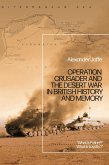The narrative unfolds through three interconnected themes: geological evolution, human civilization, and modern implications. Starting with the desert's formation during the Pleistocene epoch, the book examines how tectonic movements and climate changes created an environment that supported both nomadic and settled communities. Archaeological evidence, including fascinating rock art and settlement remains, demonstrates the region's vital role as a trade route connecting sub-Saharan Africa to the Mediterranean world.
Drawing from multiple disciplines, including geological surveys, archaeological findings, and environmental studies, the book bridges ancient wisdom with contemporary challenges. It explores how historical water management techniques inform modern conservation efforts and examines the desert's ongoing influence on regional dynamics. The work is particularly valuable for its integration of cutting-edge research methods, such as satellite imagery analysis and ground-penetrating radar data, providing new insights into both ancient settlement patterns and current resource distribution challenges.
Dieser Download kann aus rechtlichen Gründen nur mit Rechnungsadresse in A, B, BG, CY, CZ, D, DK, EW, E, FIN, F, GR, H, IRL, I, LT, L, LR, M, NL, PL, P, R, S, SLO, SK ausgeliefert werden.









